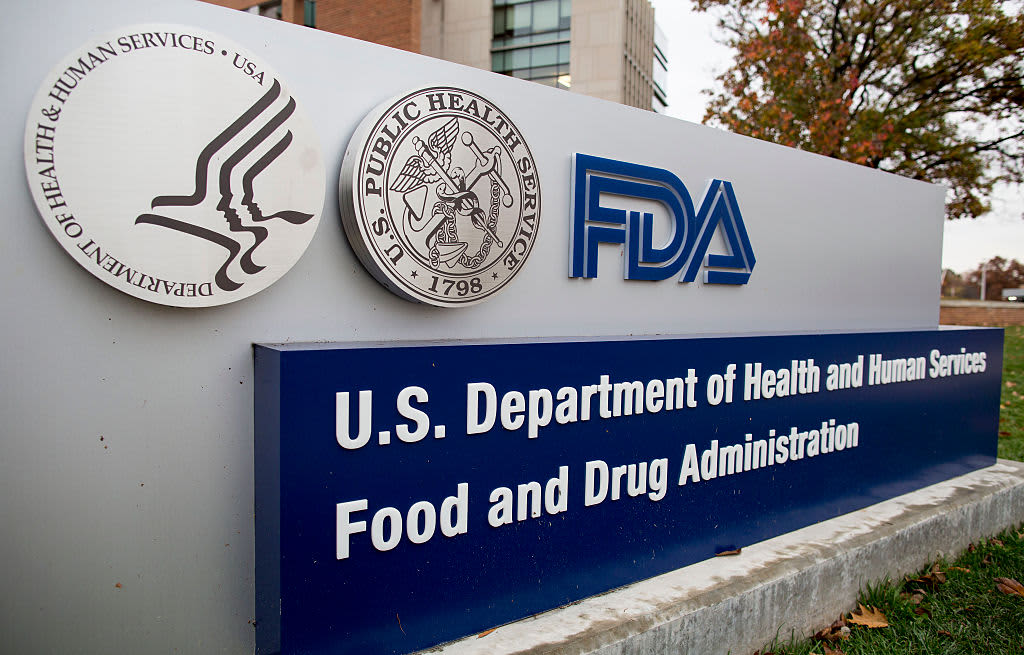A Food and Drug Administration committee on Thursday recommended against full approval of a lung cancer treatment developed by Innovent Biologics and Eli Lilly over concerns the clinical trial was conducted solely in China in participants that weren’t as diverse as the U.S. population.
The FDA’s Oncologic Drugs Advisory Committee, in a 14 to 1 vote, said the companies should conduct additional clinical trials that reflect U.S. patients before they receive final approval. The monoclonal antibody treatment, sintilimab, treats adults with non-small cell lung cancer in combination with chemotherapy.
FDA committee members said the trial population of mostly Asian men did not represent the diversity of U.S. patients, making it difficult to determine whether the results would hold up here.
Patients who develop lung cancer in the U.S. are split equally across genders and have diverse ethnic backgrounds. The patients in the study were also younger and fewer were current or former smokers compared witho people who develop lung cancer in the U.S.
“At a time when the FDA and the industry are trying to increase diversity in clinical trials to ensure they are representative of the patient population to be treated, it makes no sense to move in the opposite direction with this application,” said David Mitchell, a committee and founder of Patients for Affordable Drugs.
Dr. Richard Pazdur, director of the FDA’s Oncology Center of Excellence, emphasized the importance of conducting clinical trials across multiple countries to ensure they reflect racial diversity. He said the goal is not to exclude China, but bring it into the international fold on drug development.
“Single countries submissions is a step backward in achieving the racial diversity that we need in the United States,” Pazdur said.
Dr. Lana Shiu, head of regulatory affairs at Innovent, said sintilimab was well tolerated and showed a significant benefit for patients against multiple tumor types. Dr. David Ferry, head oncological medical strategy at Eli Lilly, said race and body weight has no meaningful impact on the effectiveness of sintilimab.
Committee members also said the trial failed to meet FDA standards of informed consent because it did not explicitly lay out treatments with approved therapies or participation in alternative studies.
“While data integrity is of utmost importance in clinical research, moral integrity is of greater importance,” said Dr. Ravi Madan, a clinical director at the National Cancer Institute. Madan said the informed consent form was not updated as needed during the trial.
The companies also did not consult with the FDA through the entire clinical trial. The study began in August 2018 but the FDA was not informed until April 2020, when the companies submitted their results and said they planned to apply for approval.
“I’m disappointed to hear that the lack of engagement between the applicant and the sponsor early on during the trial design,” Dr. Jorge Garcia, a cancer specialist. “I would like to believe that if those meetings were held, we probably wouldn’t be actually having this conversation.”
Dr. Harpreet Singh, a director within the FDA’s Office of Oncologic Diseases, said the agency investigators inspected two sites during the trial and found underreporting of adverse events. Singh said the trial staff were trained on the importance of good recordkeeping to prevent future issues.
Dr. Jorge Nieva dissented during the vote, saying the drug works and provides value to patients compared to chemotherapy alone. Nieva said although there are other lung cancer drugs on the market, approving more would help reduce prices and improve access for more patients.
“We have no evidence that the data presented is unreliable, synthetic or otherwise fraudulent,” Nieva, a cancer specialist and professor at the Keck School Medicine at the University of Southern California. “We have adequate FDA inspections that were not hampered. If more inspections were needed, it is expected the FDA would have performed them,” he said.
